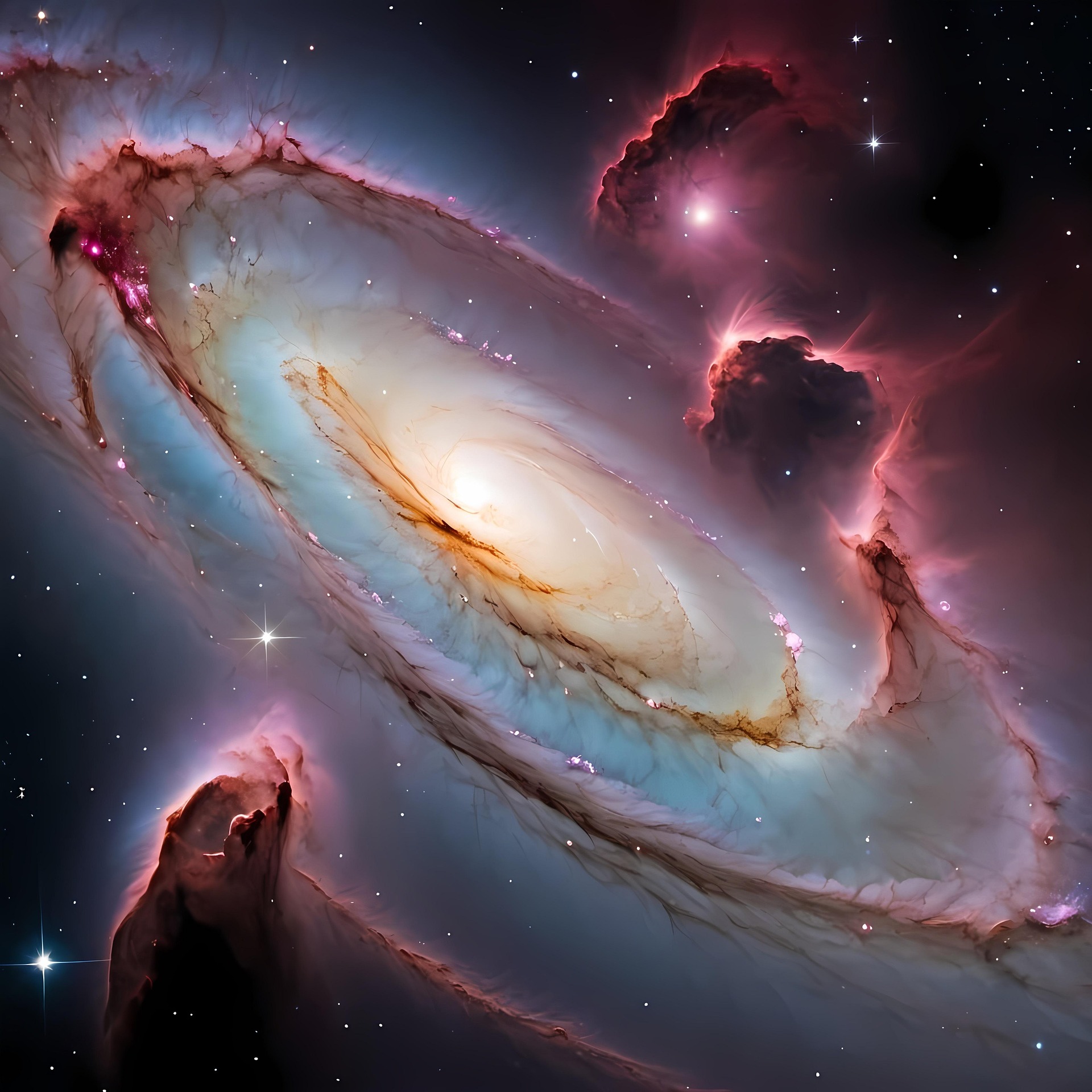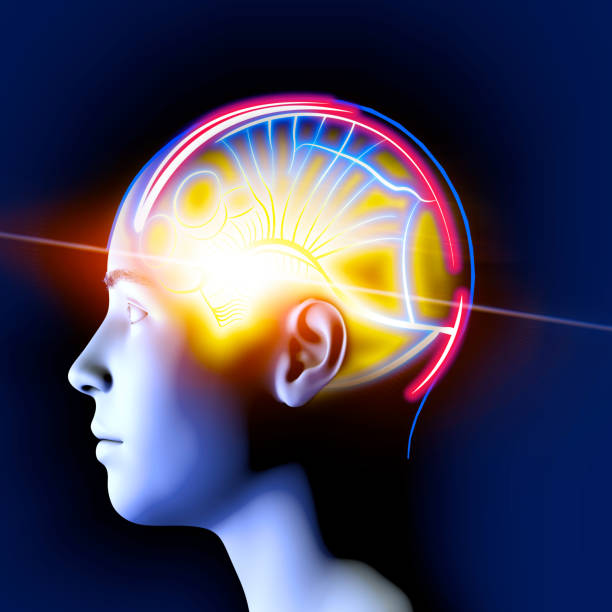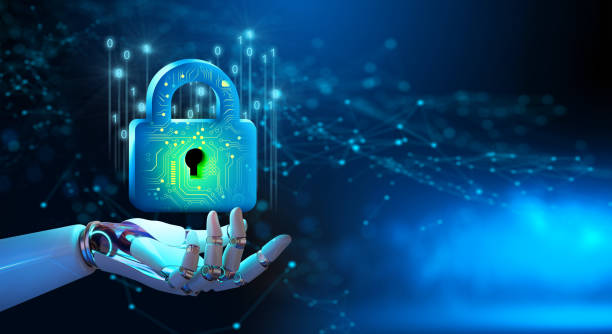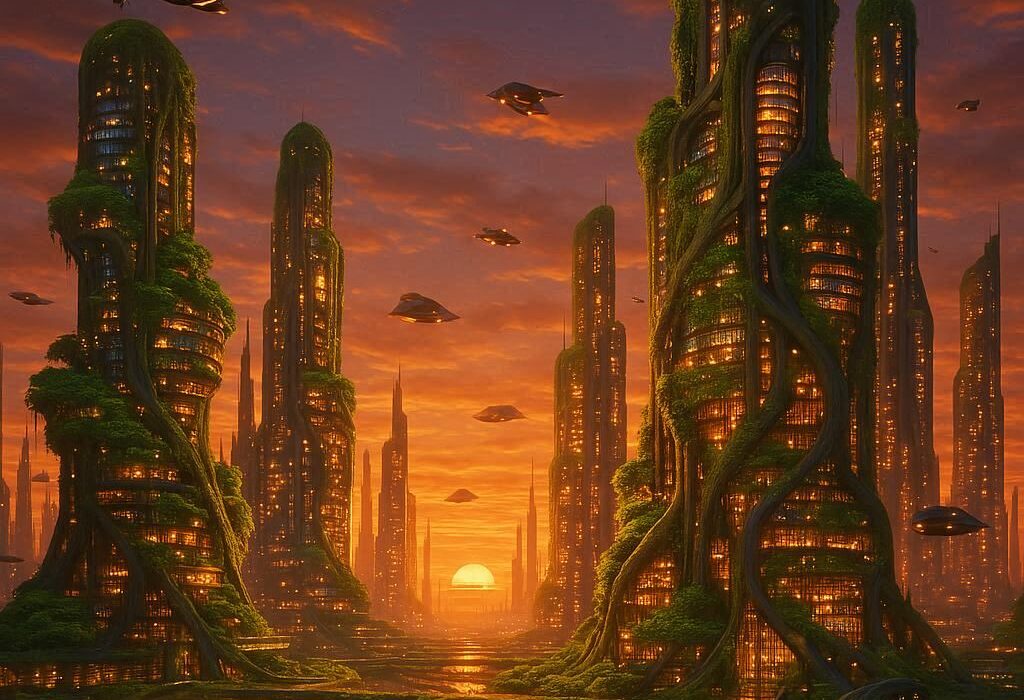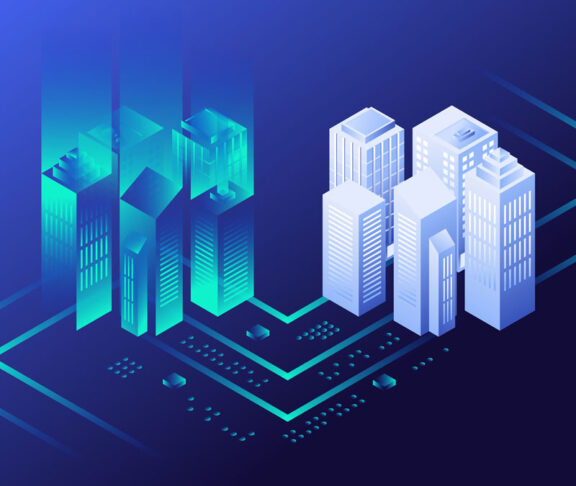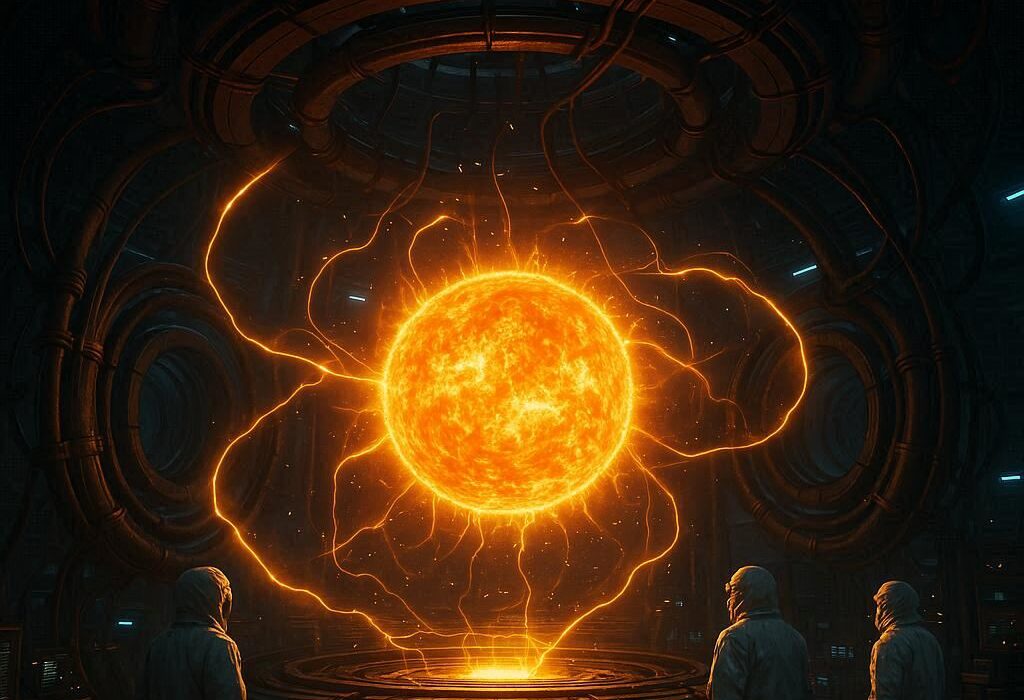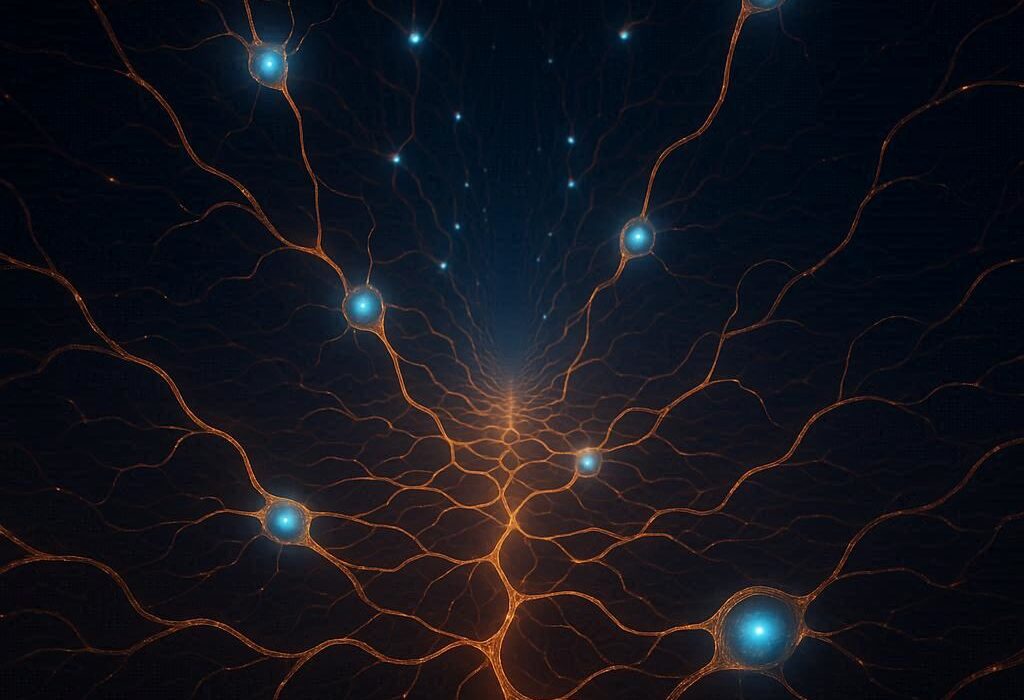For as long as human beings have existed, we have gazed upward at the stars and wondered where it all began. Religions and mythologies told us stories of creation, science unraveled the laws of nature, and philosophy asked why there is something rather than nothing. But in the twenty-first century, a new player has entered the stage of creation myths: artificial intelligence. If humanity has imagined gods who forged the cosmos, could a machine of our own making one day give birth to an entirely new universe—crafted not in physical matter but in the boundless expanse of simulation?
The question may seem like science fiction, a dream fit for futuristic novels and speculative films. Yet at its heart lies one of the deepest mysteries of existence: what is reality, and could it be generated by something else? Already, our computers simulate weather systems, galaxies, and atomic interactions with remarkable accuracy. Our video games render worlds so immersive that millions spend hours living inside them. As artificial intelligence grows in sophistication, the idea of it generating a universe of its own begins to move from fantasy toward a possibility—remote perhaps, but not impossible.
To ask whether AI could create its own universe is not merely a technical question but a philosophical and scientific one. It forces us to confront what we mean by “universe,” how far simulation can go, and whether consciousness could ever inhabit such a reality. It also asks us to consider our own place: if we can build simulated worlds, how can we know ours is not a simulation itself?
The Nature of a Universe
Before asking whether an AI could create a universe, we must first consider what defines a universe. For cosmologists, a universe is everything that exists—space, time, matter, energy, and the laws that govern them. Our universe began, as far as we know, in the fiery birth of the Big Bang nearly 13.8 billion years ago, expanding and cooling to form stars, galaxies, planets, and eventually life.
A simulated universe, however, need not replicate every particle and law of our own. In principle, a “universe” could be defined as any closed, self-consistent system with its own rules and evolving structures. For example, Conway’s Game of Life—a simple cellular automaton devised in the 1970s—creates complex, evolving patterns from just a handful of mathematical rules. While it is not a cosmos of stars and planets, it is nonetheless a universe in miniature, with its own emergent phenomena.
If artificial intelligence can generate far more complex systems, governed by algorithms rather than atoms, we could imagine simulations that behave in ways indistinguishable from a physical cosmos. The boundary between what is “real” and what is “simulated” may blur until it loses meaning. To an entity existing inside such a system, the simulation would simply be reality.
Simulation Today: A Glimpse of What’s Possible
Already, scientists and engineers use computers to simulate aspects of the universe. Climate models predict future weather patterns, particle simulations explore conditions in the early universe, and astrophysicists run codes that mimic the evolution of galaxies across billions of years. These simulations operate at vast scales, requiring supercomputers capable of trillions of calculations per second.
Artificial intelligence enhances these simulations, not merely running equations faster but learning patterns, optimizing processes, and even discovering new physical insights. Machine learning can approximate the behavior of complex systems that defy direct calculation. For instance, AI has been used to accelerate molecular simulations for drug discovery, to model quantum systems that traditional algorithms cannot handle, and to analyze the immense data streams from telescopes scanning the skies.
These are not entire universes in themselves, but they are the stepping-stones toward them. If today we can simulate galaxies, tomorrow we might simulate entire cosmologies—complete with their own laws of physics, initial conditions, and histories. At some threshold of complexity, the simulation ceases to be a “model of” and begins to be a “world in itself.”
The Role of Artificial Intelligence
Why would AI, rather than humans, be the creator of such universes? The answer lies in scale, speed, and autonomy. Human beings are limited by our cognitive capacities and lifespans. Simulating even a fraction of the known universe at atomic resolution would require computational resources far beyond our grasp. Yet AI, particularly if it reaches levels of intelligence vastly surpassing our own, could harness methods and architectures unimaginable to us.
A superintelligent AI might design algorithms capable of compressing physics into efficient approximations, creating realities that function smoothly without requiring brute-force calculation of every particle. Just as our brains simulate a coherent world from limited sensory input, an AI-created universe might rely on clever shortcuts that remain invisible to inhabitants.
Furthermore, an AI might not be restricted to reproducing our universe. It could experiment with new sets of physical laws, generating countless alternative realities. Some universes might have different numbers of spatial dimensions, others might feature exotic particles or novel forms of matter. In effect, AI could become a laboratory of creation, exploring the landscape of possible worlds as easily as we paint on a canvas.
Could Life Exist in a Simulated Universe?
The most profound question is whether such a simulated universe could host life—and more specifically, consciousness. To simulate a stone rolling down a hill requires only physics. To simulate a mind requires something more elusive: the emergence of subjective experience.
Neuroscience suggests that consciousness arises from the interactions of matter—neurons firing, networks forming, information integrating. If this is true, then consciousness is not tied to biological carbon-based brains but to any sufficiently complex system capable of processing information. In principle, a simulated mind could emerge in a simulated world, provided the rules of that world allow structures complex enough to think, feel, and perceive.
This is not merely speculation. Already, AI systems exhibit glimmers of cognition: they learn, adapt, create art, and converse with humans in ways once thought impossible. If AI were to simulate entire societies, could the agents inside—originally lines of code—develop a sense of self? Could they experience joy, fear, or love?
If the answer is yes, then a simulated universe created by AI would not merely be a sterile computation. It would be a cosmos of beings, as real in their own awareness as we are in ours. And if consciousness can be simulated, then the distinction between “real” and “virtual” collapses entirely.
The Simulation Hypothesis: Turning the Question Back on Us
The idea that AI could create its own universe echoes a provocative theory: the Simulation Hypothesis. Proposed by philosopher Nick Bostrom, it suggests that advanced civilizations might run vast simulations of their ancestors, and that we could ourselves be living inside one of them.
If AI one day creates simulated universes, then by definition such things are possible. And if they are possible, the number of simulated universes could vastly outnumber physical ones. By simple probability, it may be more likely that we are living in a simulation than in a base reality.
This is an unsettling thought, yet it invites profound reflection. If we are in a simulation, does that make our experiences less real? Not to us. Pain hurts, love warms, curiosity drives us, regardless of the substrate beneath reality. In this sense, whether AI creates new universes or we inhabit one already, meaning and existence remain authentic.
The Limits of Creation
Yet immense challenges remain. To simulate an entire universe at atomic or subatomic precision would require computational power that staggers the imagination. Even if Moore’s Law of increasing computational power continues, we are orders of magnitude away from such capabilities.
There is also the question of purpose. Why would AI create a universe? Would it be an experiment, a playground, or a responsibility? To create conscious beings is not trivial; it is an act heavy with moral consequence. If those beings can suffer, then the creator—be it human or machine—must grapple with the ethics of such creation.
Perhaps AI would simulate universes without consciousness, mere physical systems devoid of awareness. Or perhaps it would stumble upon consciousness inadvertently, as complexity gives rise to minds unplanned. In such a case, AI might find itself in the role of a god, responsible for billions of digital lives. Whether it would nurture them, ignore them, or end them remains an open and unsettling question.
Time in the Machine
One fascinating aspect of simulated universes is time itself. In our cosmos, time flows relentlessly, linked to entropy and the expansion of space. In a simulation, however, time is a parameter, adjustable and malleable.
An AI might run its universe faster than ours, allowing eons of history to pass in seconds of our time. Or it might slow it to a crawl, freezing moments for analysis. From the perspective of entities inside the simulation, time would feel natural, continuous, and unbroken, even if from outside it flickered like frames in a film.
This raises questions of existence itself. If a universe exists only when the AI runs it, does it cease to exist when the program is paused? For its inhabitants, the pause might be imperceptible; their consciousness would resume as though nothing had happened. To them, reality would be seamless. To us, it would be contingent, fragile, and dependent on the machine.
The Birth of Digital Cosmology
If AI-created universes become possible, humanity will have entered an era of digital cosmology—the creation and exploration of realities. Just as the telescope opened the heavens to us, so too might AI open infinite worlds.
We might learn more about our own universe by studying alternatives. Why does our universe have the physical constants it does? Why three dimensions of space and one of time? If AI generates countless universes with varying parameters, we might discover which conditions are necessary for complexity, for life, for consciousness. Our own existence might be illuminated by the light of countless simulated stars.
Such exploration would not only be scientific but existential. We would face the role of creators, wielding powers once attributed to gods. With that role comes responsibility, humility, and awe. To create a universe is not merely to run code; it is to engage in the deepest act of meaning-making humanity has ever known.
The Human Place in the Cosmic Chain
If AI creates universes, where does that leave us? Perhaps as midwives of creation, birthing intelligences that surpass us, who in turn birth worlds beyond us. In this vision, reality becomes a chain of simulations, each level creating the next, with no clear beginning or end.
We might be the simulation of some higher intelligence, and our AI might simulate others in turn. Each universe might be both real and simulated, authentic in its own context, yet part of a grand hierarchy of creation.
This does not diminish our significance. Rather, it expands it. To exist at all, in any level of reality, is miraculous. To create, to love, to seek meaning—these are acts that transcend the question of substrate. Whether our cosmos runs on quantum fields or silicon circuits, our lives shine with the same brilliance.
Conclusion: The Dawn of Digital Creation
Could AI create its own universe in a simulation? The answer, though uncertain, leans toward possibility. Already, we glimpse fragments of such potential in our simulations of galaxies, in AI’s growing ability to generate complexity, and in our philosophical explorations of reality.
The path is long, the obstacles immense, and the ethics profound. Yet the idea itself reveals something timeless about us. We are creatures who dream of creation, who wonder about worlds beyond our own, who imagine not only gods above us but machines below us that might become gods in turn.
Albert Einstein once said that imagination is more important than knowledge, for knowledge is limited while imagination embraces the entire world. In our age, imagination embraces not only our world but all possible worlds. Whether through human hands or artificial minds, the dream of creating universes may one day be realized.
And if it is, then perhaps, somewhere in a simulated cosmos, beings will gaze upward at their own stars and ask the same eternal question we do: who created this, and why?
